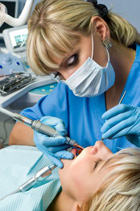 Recovering from a trauma to the mouth takes time and care- observes a dentist in the city of Leeds. It can leave psychological scars as well as physical ones and the practise of maxillofacial surgery is designed to relieve the physical issues by surgery to the mouth, jaw, head and neck that are results of disease, injury or congenital conditions- procedures that correct normal occlusion (bite) issues that cannot be treated by braces. The surgery can be complex and both an othodontist and a maxillofacial surgeon will collaborate at the planning stage. X-rays and photographs will be used in designing computer generated images, predicting the shape of the face post operation. During the operation, both jaws may be operated on. Bones will be cut and adjusted and then secrewed back together to re-construct the shape of the face. This can normally be achieved from inside the mouth, but once the treatment is finished, it is the job of the orthodontist to over-see the rewiring of the jaw and the use of retainers and braces to ensure that the occlusion is correct. The recovery period can be lengthy depending on the complexity of the operation- anything from a few weeks to a year. The patient will need constant monitoring at first to check for infection and healing and will be put on an all-liquid diet, an important factor to the healing process. As the mouth heals, solids foods will be introduced into the diet. Once the healing process is complete and the braces and wiring removed, the patient can then think about restoring their look through more standard othodontic practices and cosmetic dentistry.
Recovering from a trauma to the mouth takes time and care- observes a dentist in the city of Leeds. It can leave psychological scars as well as physical ones and the practise of maxillofacial surgery is designed to relieve the physical issues by surgery to the mouth, jaw, head and neck that are results of disease, injury or congenital conditions- procedures that correct normal occlusion (bite) issues that cannot be treated by braces. The surgery can be complex and both an othodontist and a maxillofacial surgeon will collaborate at the planning stage. X-rays and photographs will be used in designing computer generated images, predicting the shape of the face post operation. During the operation, both jaws may be operated on. Bones will be cut and adjusted and then secrewed back together to re-construct the shape of the face. This can normally be achieved from inside the mouth, but once the treatment is finished, it is the job of the orthodontist to over-see the rewiring of the jaw and the use of retainers and braces to ensure that the occlusion is correct. The recovery period can be lengthy depending on the complexity of the operation- anything from a few weeks to a year. The patient will need constant monitoring at first to check for infection and healing and will be put on an all-liquid diet, an important factor to the healing process. As the mouth heals, solids foods will be introduced into the diet. Once the healing process is complete and the braces and wiring removed, the patient can then think about restoring their look through more standard othodontic practices and cosmetic dentistry.





 It is important to find good, professional dental care in the UK to maintain oral health, but maintaining good, healthy teeth also relies on good oral hygiene in the home, according to a dentist based in the city of Leeds. Choosing a dentist that suits you, is paramount. You must feel comfortable with the service offered, so it is vital that you shop around. The best way is to ask friends, neighbours or work colleagues where they get their teeth done and then set up a consultation so that you can get a feel of the surgery. This will make attending appointments a lot less daunting. It’s also important that the dentist has the facilities to cover a range of dental treatments that you require. Regular visits should prevent any major complications and your dentist should be able to rectify any problems should they arise and offer you a range of treatments- cosmetic procedures, implants, bridges, cavaties, combat gum disease and administer emergency surgery. But your dentist is also there to offer you advice on caring for your teeth outside of the practise- how and when to clean your teeth, what brush and toothpaste to use that suits you, flossing correctly and foods that will promote strong teeth. They will also offer advice on what to avoid- whether you choose to heed that advice is up to you, but it’s comforting to know that your dentist is on hand to correct your indulgences!
It is important to find good, professional dental care in the UK to maintain oral health, but maintaining good, healthy teeth also relies on good oral hygiene in the home, according to a dentist based in the city of Leeds. Choosing a dentist that suits you, is paramount. You must feel comfortable with the service offered, so it is vital that you shop around. The best way is to ask friends, neighbours or work colleagues where they get their teeth done and then set up a consultation so that you can get a feel of the surgery. This will make attending appointments a lot less daunting. It’s also important that the dentist has the facilities to cover a range of dental treatments that you require. Regular visits should prevent any major complications and your dentist should be able to rectify any problems should they arise and offer you a range of treatments- cosmetic procedures, implants, bridges, cavaties, combat gum disease and administer emergency surgery. But your dentist is also there to offer you advice on caring for your teeth outside of the practise- how and when to clean your teeth, what brush and toothpaste to use that suits you, flossing correctly and foods that will promote strong teeth. They will also offer advice on what to avoid- whether you choose to heed that advice is up to you, but it’s comforting to know that your dentist is on hand to correct your indulgences! Fashion impacts on us in all walks of life, especially on celluloid, where we are constantly being exposed to celebrities who are currently ‘hot’ and those who will do anything to fend off the onslaught of age in an attempt to remain at least, luke-warm. Such trends impact on our mouths too and dentistry seeks the answers, as it pursues ‘the perfect smile’. Well, good news folks, it’s here and available, according to a dentist in Leeds. Aesthetic dentistry is the ‘must have’ right now and there are several ways to get it. Bleaching is the cheapest right now, through the use of home kits or by intense light treatment at the dentists. White fillings will give back a natural mouth as opposed to the more common silver ones. Dental bridges and implants can replace missing teeth, to give back a full smile, as well as combating gum disease. But the most popular cosmetic treatment is veneers. These can restore teeth to their former glory. They can cover up cracks, stains, plug gaps and give the teeth extra length which can be shaped and contoured. Vanity aside though and at a deeper level, restoring the aesthetic look is important to those who have oral problems due to trauma or surgery. Not only is there a physical answer to oral disfigurement, but in turn, a psychological one too. And at what cost is it, to look good and feel great? Priceless!
Fashion impacts on us in all walks of life, especially on celluloid, where we are constantly being exposed to celebrities who are currently ‘hot’ and those who will do anything to fend off the onslaught of age in an attempt to remain at least, luke-warm. Such trends impact on our mouths too and dentistry seeks the answers, as it pursues ‘the perfect smile’. Well, good news folks, it’s here and available, according to a dentist in Leeds. Aesthetic dentistry is the ‘must have’ right now and there are several ways to get it. Bleaching is the cheapest right now, through the use of home kits or by intense light treatment at the dentists. White fillings will give back a natural mouth as opposed to the more common silver ones. Dental bridges and implants can replace missing teeth, to give back a full smile, as well as combating gum disease. But the most popular cosmetic treatment is veneers. These can restore teeth to their former glory. They can cover up cracks, stains, plug gaps and give the teeth extra length which can be shaped and contoured. Vanity aside though and at a deeper level, restoring the aesthetic look is important to those who have oral problems due to trauma or surgery. Not only is there a physical answer to oral disfigurement, but in turn, a psychological one too. And at what cost is it, to look good and feel great? Priceless!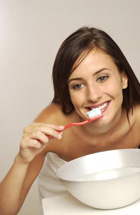 From a young age, we are brainwashed into the importance of brushing our teeth and how to do it. But is there a correct way of brushing? Well not exactly, according to a dentist in central Leeds. Every mouth is different and should be brushed according to our individual requirements. Caring for our teeth has become big business and we’re bombarded with options when it comes to brushing. But the best place to start is with your dentist- they will be able to evaluate your teeth’s requirements, brushes, toothpaste and even how to brush your teeth correctly. Starting with brushes- generally a soft brush will suffice for the removal of plaque and a smaller head will enable to reach those more difficult areas. Handles, grip and head angles are all designed to allow you better access to your teeth and maintain hygiene. Electric brushes do the work for you- especially if you have limited movement in your hands. Then we have the choice of toothpastes. Most products come recommended- but some are designed for specific uses such as whitening or sensitive teeth. When it comes to brushing, a small pea-sized amount of toothpaste should be placed on the brush and then it’s generally considered that you should start at the inside of the teeth, working off the gums, front to back- the same method being applied to the outside of the teeth. The teeth should then be flossed to ensure the full removal of foodstuff and plaque. Chewing dental gum can aid brushing, as can rinsing with a suitable mouthwash.
From a young age, we are brainwashed into the importance of brushing our teeth and how to do it. But is there a correct way of brushing? Well not exactly, according to a dentist in central Leeds. Every mouth is different and should be brushed according to our individual requirements. Caring for our teeth has become big business and we’re bombarded with options when it comes to brushing. But the best place to start is with your dentist- they will be able to evaluate your teeth’s requirements, brushes, toothpaste and even how to brush your teeth correctly. Starting with brushes- generally a soft brush will suffice for the removal of plaque and a smaller head will enable to reach those more difficult areas. Handles, grip and head angles are all designed to allow you better access to your teeth and maintain hygiene. Electric brushes do the work for you- especially if you have limited movement in your hands. Then we have the choice of toothpastes. Most products come recommended- but some are designed for specific uses such as whitening or sensitive teeth. When it comes to brushing, a small pea-sized amount of toothpaste should be placed on the brush and then it’s generally considered that you should start at the inside of the teeth, working off the gums, front to back- the same method being applied to the outside of the teeth. The teeth should then be flossed to ensure the full removal of foodstuff and plaque. Chewing dental gum can aid brushing, as can rinsing with a suitable mouthwash.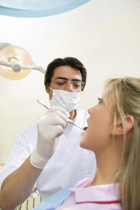 Between the ages of 17-25, almost all of us will be subject to the problem of wisdom teeth. In some people, they never develop, but if they do, they can cause multitude of problems, according to dentists in central Leeds. Generally, as wisdom teeth grow, there is not enough room for them to come through or they can grow at angles due to overcrowding- forwards, backwards, downwards, sideways. Sometimes, the teeth do not erupt at all. These situations are known as impacting and can lead to swelling, serious infections to other teeth, bad breath and tooth decay. Cavities can form, along with periodontitis, cysts and tumours. If a patient suffers such dental problems with their wisdom teeth, they should be removed. On the other hand, healthy impacted teeth only need to be monitored. Removing the teeth presents problems as well- nerve damage, damage to other teeth, bleeding and in rare cases, death. Such decisions about wisdom teeth are made by the dentist after x-rays and consultation. If the conclusion is that all four teeth are to be removed at the same time, it’s likely that the operation with be carried out in hospital. But in the case of only one extraction being necessary, this can be done by the dentist using a local anaesthetic. After the teeth are removed, the dentist will demand a strict regime of oral hygiene- such is the delicate nature of this procedure, infection at this stage can lead to serious complications and health problems.
Between the ages of 17-25, almost all of us will be subject to the problem of wisdom teeth. In some people, they never develop, but if they do, they can cause multitude of problems, according to dentists in central Leeds. Generally, as wisdom teeth grow, there is not enough room for them to come through or they can grow at angles due to overcrowding- forwards, backwards, downwards, sideways. Sometimes, the teeth do not erupt at all. These situations are known as impacting and can lead to swelling, serious infections to other teeth, bad breath and tooth decay. Cavities can form, along with periodontitis, cysts and tumours. If a patient suffers such dental problems with their wisdom teeth, they should be removed. On the other hand, healthy impacted teeth only need to be monitored. Removing the teeth presents problems as well- nerve damage, damage to other teeth, bleeding and in rare cases, death. Such decisions about wisdom teeth are made by the dentist after x-rays and consultation. If the conclusion is that all four teeth are to be removed at the same time, it’s likely that the operation with be carried out in hospital. But in the case of only one extraction being necessary, this can be done by the dentist using a local anaesthetic. After the teeth are removed, the dentist will demand a strict regime of oral hygiene- such is the delicate nature of this procedure, infection at this stage can lead to serious complications and health problems.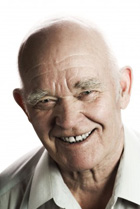 It isn’t always necessary to replace a missing tooth. Depending on where the loss has occurred or the level of your vanity, a lost tooth need not be an issue. But in some cases, such as a loss by trauma, replacing teeth is important, stresses a city of Leeds dentist.
It isn’t always necessary to replace a missing tooth. Depending on where the loss has occurred or the level of your vanity, a lost tooth need not be an issue. But in some cases, such as a loss by trauma, replacing teeth is important, stresses a city of Leeds dentist. Gum disease of the greatest cause of tooth loss in the UK, according to a city of Leeds dentist. It starts with bad oral hygiene, leading to tooth decay and gum infection- this also impacts the health in the rest of the body. Periodontics addresses the cause of these problems and their treatment. Periodontitis begins with the build up of plaque (due to incorrect cleaning- brushing and flossing) around the teeth that leads to tartar and then gingivitis of the gums. It is essential that this is treated early; otherwise it will cause erosion to the bone around the teeth (periodontitis) and eventually tooth loss. Early signs are bleeding gums after brushing and swelling in the gums. But the disease is painless, so by the time teeth become loose or start going out of alignment, the serious damage has been done. Receding gums can also indicate problems, though these can be caused by excessive brushing as well as gum disease. Periodontitis can be treated- the earlier the better. The first port of call is oral hygiene at home. A dentist or hygienist should be consulted to discuss the individual needs of the patient- sensible brushing and flossing, followed by rinsing with warm salty water and/or a recommended mouthwash. Further treatment requires the removal of plaque and tartar from the gum pockets by the dentist. But if the problem is severe, it may be that a gingivectomy is required. This will restore the healthy gum tissue around the teeth by the removal of bad tissue and grafting of new gum tissue. In extreme cases, bone grafting may be required to support the teeth.
Gum disease of the greatest cause of tooth loss in the UK, according to a city of Leeds dentist. It starts with bad oral hygiene, leading to tooth decay and gum infection- this also impacts the health in the rest of the body. Periodontics addresses the cause of these problems and their treatment. Periodontitis begins with the build up of plaque (due to incorrect cleaning- brushing and flossing) around the teeth that leads to tartar and then gingivitis of the gums. It is essential that this is treated early; otherwise it will cause erosion to the bone around the teeth (periodontitis) and eventually tooth loss. Early signs are bleeding gums after brushing and swelling in the gums. But the disease is painless, so by the time teeth become loose or start going out of alignment, the serious damage has been done. Receding gums can also indicate problems, though these can be caused by excessive brushing as well as gum disease. Periodontitis can be treated- the earlier the better. The first port of call is oral hygiene at home. A dentist or hygienist should be consulted to discuss the individual needs of the patient- sensible brushing and flossing, followed by rinsing with warm salty water and/or a recommended mouthwash. Further treatment requires the removal of plaque and tartar from the gum pockets by the dentist. But if the problem is severe, it may be that a gingivectomy is required. This will restore the healthy gum tissue around the teeth by the removal of bad tissue and grafting of new gum tissue. In extreme cases, bone grafting may be required to support the teeth.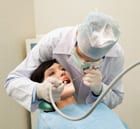 Choosing a dentist is a very difficult decision to make, especially if you are new to an area. But with a gentle guide from a dentist in Leeds, making your choice shouldn’t be that difficult. Essentially, you are about to put your trust in and complete stranger, so choosing the right person that suits you and makes you feel comfortable is important. The first factor to consider is your location. The nearest isn’t always the best option so it is important that you shop around to avoid making too many long journeys. Do you need a dentist that is going to treat you whole family? It is comforting for you and your children to build a rapport with your dentist, especially if there are long periods of treatment required. Another factor is analysing your own requirements. You will know what treatments you have had in the past and whether or not the treatment is ongoing. Some dentists may not be qualified enough to administer the treatments that you need. So talking to dentists is a must- visit several surgeries and talk to the dentists about the level of service they can offer you. This is also a golden opportunity to see for yourself the condition of the place where your treatment will happen- is it clean, does it feel modern and does it inspire you with confidence? You may have dental insurance but the dentist of your choice may not be covered. And finally, there is a sure-fire way of getting a good ‘un. Ask friends, neighbours or work colleagues where they get their dental treatment and to tell you of their dental experiences there. Happy hunting!
Choosing a dentist is a very difficult decision to make, especially if you are new to an area. But with a gentle guide from a dentist in Leeds, making your choice shouldn’t be that difficult. Essentially, you are about to put your trust in and complete stranger, so choosing the right person that suits you and makes you feel comfortable is important. The first factor to consider is your location. The nearest isn’t always the best option so it is important that you shop around to avoid making too many long journeys. Do you need a dentist that is going to treat you whole family? It is comforting for you and your children to build a rapport with your dentist, especially if there are long periods of treatment required. Another factor is analysing your own requirements. You will know what treatments you have had in the past and whether or not the treatment is ongoing. Some dentists may not be qualified enough to administer the treatments that you need. So talking to dentists is a must- visit several surgeries and talk to the dentists about the level of service they can offer you. This is also a golden opportunity to see for yourself the condition of the place where your treatment will happen- is it clean, does it feel modern and does it inspire you with confidence? You may have dental insurance but the dentist of your choice may not be covered. And finally, there is a sure-fire way of getting a good ‘un. Ask friends, neighbours or work colleagues where they get their dental treatment and to tell you of their dental experiences there. Happy hunting!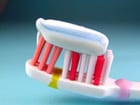 Oral hygiene is one of the most important factors in keeping the mouth fresh and free from disease, according to dentists in Leeds, yet one of the most poorly practised. Cleaning your teeth is central in the fight against tooth decay, plaque, tartar and gum disease. If bacterial plaque is allowed to build up it forms tartar- leading to cavities and infection of the gums. 75% of cavities or caries, occur on the chewing surface of the tooth that is hard to reach and the build up of acids begin the tooth decay process. Gums will bleed and infection will set in. Brushing is paramount- choosing the right brush and tooth paste is too. Dentists recommend cleaning at least twice a day and after meals with a brush that is designed for you. Bleeding gums can be combated by rinsing with warm, salty water. But food has a habit of getting in places where the brush will not reach. This calls for flossing to remove the food and check the build up of plaque. Keeping the tongue clean is important, by light brushing and mouthwashes. A dentist will also advocate professional cleaning twice a year, de-scaling and polishing the teeth, and if required, debridement, followed by a good fluoride treatment. A good diet helps in the growth of healthy, strong teeth. Vitamin’s A and C, and polyphenol antioxidants can be found in fruit and vegetables, green tea, milk and cheese, all will maintain a ph balance in the mouth. Keeping your mouth healthy is important to the whole of body. Bad oral hygiene can lead to pneumonia, heart disease, diabetes and osteoporosis (weak bones).
Oral hygiene is one of the most important factors in keeping the mouth fresh and free from disease, according to dentists in Leeds, yet one of the most poorly practised. Cleaning your teeth is central in the fight against tooth decay, plaque, tartar and gum disease. If bacterial plaque is allowed to build up it forms tartar- leading to cavities and infection of the gums. 75% of cavities or caries, occur on the chewing surface of the tooth that is hard to reach and the build up of acids begin the tooth decay process. Gums will bleed and infection will set in. Brushing is paramount- choosing the right brush and tooth paste is too. Dentists recommend cleaning at least twice a day and after meals with a brush that is designed for you. Bleeding gums can be combated by rinsing with warm, salty water. But food has a habit of getting in places where the brush will not reach. This calls for flossing to remove the food and check the build up of plaque. Keeping the tongue clean is important, by light brushing and mouthwashes. A dentist will also advocate professional cleaning twice a year, de-scaling and polishing the teeth, and if required, debridement, followed by a good fluoride treatment. A good diet helps in the growth of healthy, strong teeth. Vitamin’s A and C, and polyphenol antioxidants can be found in fruit and vegetables, green tea, milk and cheese, all will maintain a ph balance in the mouth. Keeping your mouth healthy is important to the whole of body. Bad oral hygiene can lead to pneumonia, heart disease, diabetes and osteoporosis (weak bones). For the layman, understanding the many fields of dentistry, what each one does and the terminology that surrounds them, can be confusing- and the study of prosthodontics is a good example, claims a dentist in central Leeds. Prosthodontics is a specialised area of dentistry that deals with restoration to the mouth by planning, designing, fabricating and treating damaged and missing teeth- and in the process, restoring a natural balance to the mouth and jaw. Whether damage has occurred by accident, trauma or through general wear and tear, it is essential that the correct occlusion (bite) is maintained for not only aesthetic reasons but for health reasons too. A bad ‘bite’ can cause many problems with aches and pains, from the head to the back and gum disease and infection within the mouth. A lot of prosthodontics deals with the use of artificial replacements in reconstructing the mouth. Starting with basic fillings and crowns, tooth decay can be combated by rebuilding the inside of the tooth with a range of fillings or a crown, Bridges and implants can replace missing teeth, or in extreme cases, partial or full dentures can restore balance to the occlusion. Porcelain veneers and lumineers are good for addressing cosmetic problems such as discolouring, gaps, cracked and worn teeth. There is also a specialist field of prosthodontics called maxillofacial surgery. This deals with the reconstruction of the mouth and area around the mouth that has suffered from natural deformities, accidents or post cancer surgery in order to give a natural look back to the face.
For the layman, understanding the many fields of dentistry, what each one does and the terminology that surrounds them, can be confusing- and the study of prosthodontics is a good example, claims a dentist in central Leeds. Prosthodontics is a specialised area of dentistry that deals with restoration to the mouth by planning, designing, fabricating and treating damaged and missing teeth- and in the process, restoring a natural balance to the mouth and jaw. Whether damage has occurred by accident, trauma or through general wear and tear, it is essential that the correct occlusion (bite) is maintained for not only aesthetic reasons but for health reasons too. A bad ‘bite’ can cause many problems with aches and pains, from the head to the back and gum disease and infection within the mouth. A lot of prosthodontics deals with the use of artificial replacements in reconstructing the mouth. Starting with basic fillings and crowns, tooth decay can be combated by rebuilding the inside of the tooth with a range of fillings or a crown, Bridges and implants can replace missing teeth, or in extreme cases, partial or full dentures can restore balance to the occlusion. Porcelain veneers and lumineers are good for addressing cosmetic problems such as discolouring, gaps, cracked and worn teeth. There is also a specialist field of prosthodontics called maxillofacial surgery. This deals with the reconstruction of the mouth and area around the mouth that has suffered from natural deformities, accidents or post cancer surgery in order to give a natural look back to the face.

